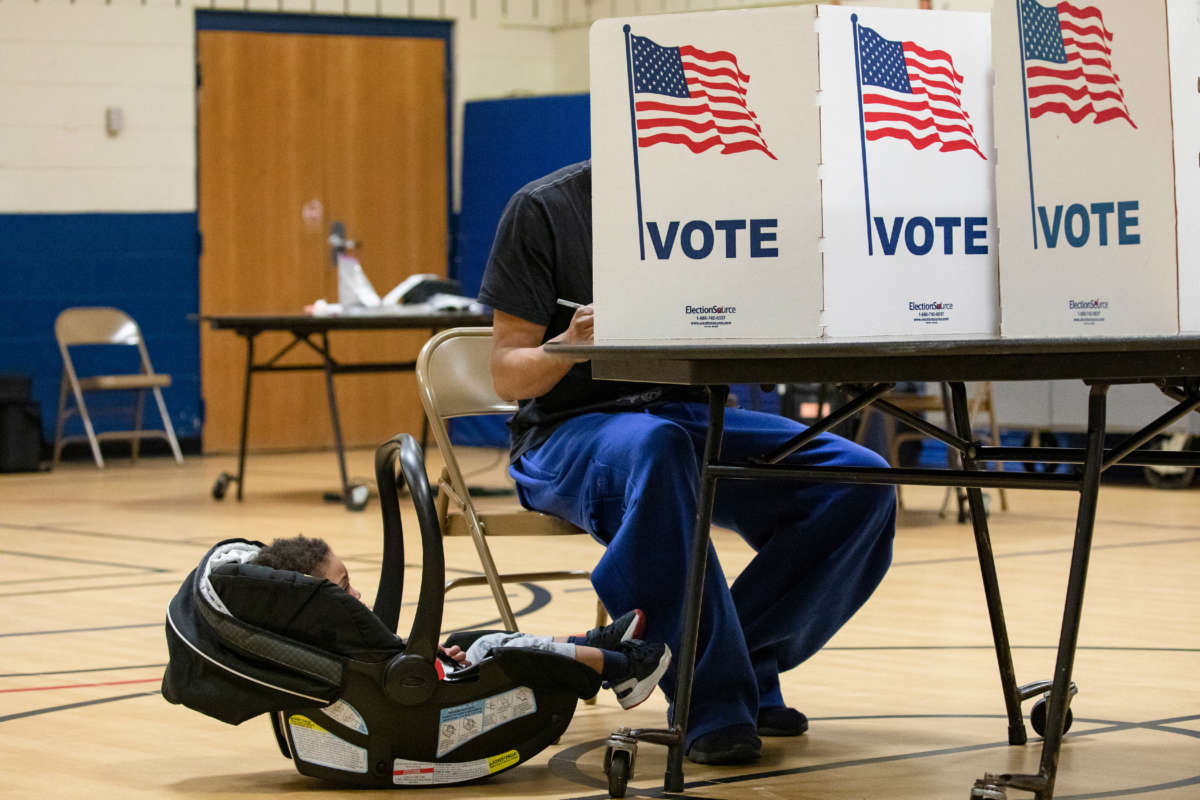On Monday, a group of House Democrats introduced a bill guaranteeing that workers get paid time off to vote in federal elections as other voting rights initiatives have fallen flat.
The Time Off to Vote Act, introduced by Representatives Nikema Williams (D-Georgia), Matt Cartwright (D-Pennsylvania), Cheri Bustos (D-Illinois) and Andy Levin (D-Michigan), would require employers to give their employees at least two hours off of work to vote, either on election day or on a day with early voting.
Many states have no regulations requiring that workers get time off to vote; even in states that do guarantee that right, many only require that workers get unpaid time off, meaning that workers may not be able to take advantage of the benefit without suffering financially.
The bill would help to normalize regulations for paid time off across the country, a critical step toward expanding voting access. It requires that the paid time off be separate from workers’ existing benefits.
“No one should be forced to choose between earning their full paycheck or participating in our democracy,” Williams said in a statement. “In the last two elections, countless Georgians waited in line for hours to vote. Many waited all day. The Time off to Vote Act will make it easier for working people to exercise their sacred right to vote.”
For months, Democrats have tried — and failed — to pass legislation to protect voting rights. President Joe Biden emphasized the issue during his first year in office, but Sen. Joe Manchin (D-West Virginia) killed Democrats’ hope of being able to pass sweeping anti-corruption election bills like the For the People Act, which voting rights advocates have said are crucial to protecting democracy.
The Time Off to Vote Act has been introduced in previous years, but has never been taken to a vote. Proposals like making Election Day a federal holiday also aim to ensure that work isn’t a barrier to being able to vote, but about a quarter of workers don’t receive days off on federal holidays, according to a 2018 federal survey.
Not being able to get time off to vote is a major barrier to voting, making it hard or impossible for people to cast their ballots. According to a FiveThirtyEight/Ipsos poll conducted after the 2020 election, waiting in long voting lines and not having time off are two of the top barriers to voting. With Republicans creating stricter guidelines for mail-in ballot access, some people may be blocked from voting at all.
These barriers affect Black and Latinx voters disproportionately. Racist voter suppression policies have led to fewer polling stations in predominantly Black and Latinx neighborhoods, meaning that people in these communities often have to wait in line for hours to vote; data has shown that Black and Latinx voters wait about 45 percent longer on average than white voters.
Voters in poorer neighborhoods are also more likely to face long lines while waiting to vote — and for many low-income people, this is an impassable hurdle. Some workers aren’t allowed to take time off to vote, and those that have the option of taking unpaid time off often can’t afford to do so, especially when they may have to wait hours in line.
While the Time Off to Vote Act could help expand voting access, two hours may still not be enough in places like Georgia, where some workers waited 10 hours or more to vote in the 2020 presidential election.
Media that fights fascism
Truthout is funded almost entirely by readers — that’s why we can speak truth to power and cut against the mainstream narrative. But independent journalists at Truthout face mounting political repression under Trump.
We rely on your support to survive McCarthyist censorship. Please make a tax-deductible one-time or monthly donation.
